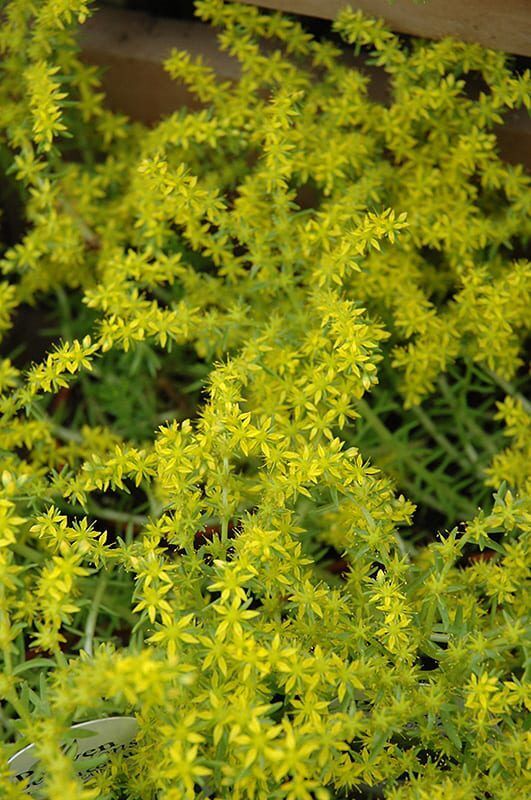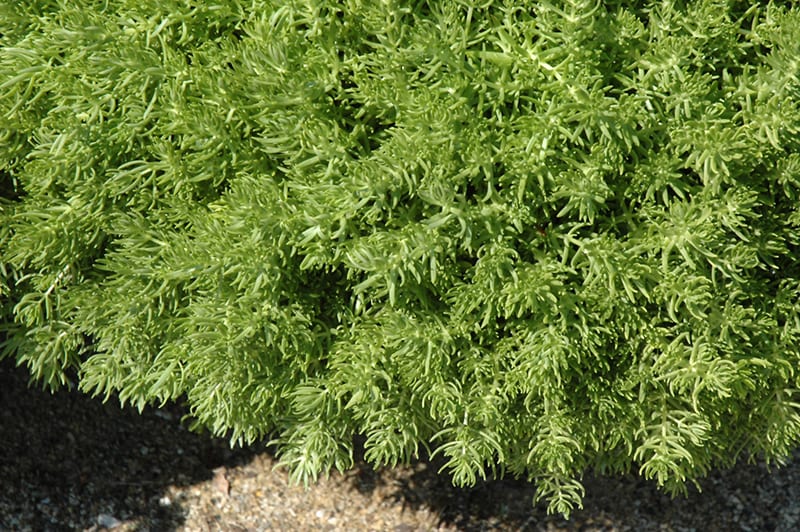Lemon Coral Stonecrop
This outstanding variety is grown for its fine textured carpets of needle-like chartreuse to yellow foliage, that becomes bronzed in winter; presents flat topped clusters of bright yellow flowers in summer; excellent hanging container plant.
Please contact your local store for product availability.
Find a garden center near you.
Species: rupestre
Other Species Names: Sedum reflexum
Plant Height: 8 in.
Spread: 12 in.
Evergreen: No
Plant Form: spreading
Emergent Foliage Color: yellow
Summer Foliage Color: chartreuse
Minimum Sunlight: partial shade
Maximum Sunlight: full sun
Lemon Coral Stonecrop is smothered in stunning yellow star-shaped flowers at the ends of the stems from early to mid summer. Its attractive succulent needle-like leaves emerge yellow in spring, turning chartreuse in color throughout the season. The fruit is not ornamentally significant.
Lemon Coral Stonecrop is a dense herbaceous perennial with a ground-hugging habit of growth. It brings an extremely fine and delicate texture to the garden composition and should be used to full effect.This plant will require occasional maintenance and upkeep, and is best cleaned up in early spring before it resumes active growth for the season. It is a good choice for attracting bees and butterflies to your yard, but is not particularly attractive to deer who tend to leave it alone in favor of tastier treats. Gardeners should be aware of the following characteristic(s) that may warrant special consideration;SpreadingLemon Coral Stonecrop is recommended for the following landscape applications;Mass PlantingRock/Alpine GardensBorder EdgingGeneral Garden UseGroundcover
Lemon Coral Stonecrop will grow to be about 8 inches tall at maturity, with a spread of 12 inches. When grown in masses or used as a bedding plant, individual plants should be spaced approximately 10 inches apart. Its foliage tends to remain low and dense right to the ground. It grows at a fast rate, and under ideal conditions can be expected to live for approximately 10 years.This plant does best in full sun to partial shade. It prefers dry to average moisture levels with very well-drained soil, and will often die in standing water. It is considered to be drought-tolerant, and thus makes an ideal choice for a low-water garden or xeriscape application. It is not particular as to soil pH, but grows best in poor soils, and is able to handle environmental salt. It is highly tolerant of urban pollution and will even thrive in inner city environments. This is a selected variety of a species not originally from North America. It can be propagated by division; however, as a cultivated variety, be aware that it may be subject to certain restrictions or prohibitions on propagation.

